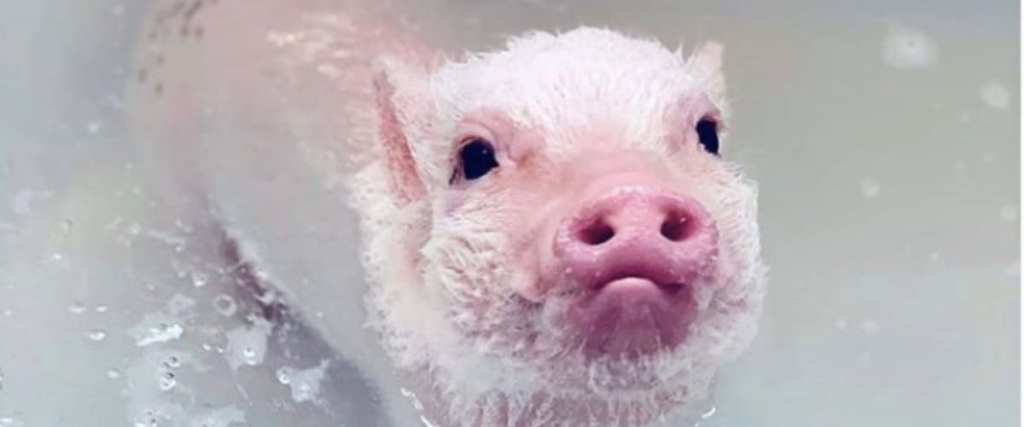There’s an episode of Seinfeld where Kramer is convinced that he’s seen a “pig man” at the hospital – a result of a genetic experiment gone horribly wrong…or right, I suppose.
And while there’s no pig man in the episode, if scientists have their way, the show is probably going to be seen as prophetic one day.
In yet another show of disregard for ethics in experimental genetics, Chinese researchers have brought pig-monkey chimeras to term.
In science (as opposed to mythology), a chimera is an organism derived from two or more zygotes. At the Key Laboratory of Stem Cell and Reproductive Biology in China, piglets were injected with monkey stem cells when they were fetuses and, for the first time in any lab ever, were brought successfully to term.
They look like regular pigs, for the record, and scientists claim they exist to further the research into growing human organs inside of animals.
The embryonic monkey stem cells came from cynomolgus monkeys, a type of macaque commonly bred for biomedical research. The cells were modified to produce a protein called GFP that would allow researchers to track the cells after injection.
https://www.instagram.com/p/B5wXG7Pptjz/
Pigs, for their part, are often used as hosts because of their biological similarities to humans.
The team implanted the cells into more than 4,000 pig embryos, but only 2 of the 10 altered babies were born with monkey stem cells showing up in their heart, liver, spleen, lung, and skin.
Every one of the litter of 10 died within a week of birth from an unknown cause, but as both chimera and typical pigs perished, researchers believe it had to do with the IVF process and not the altered stem cells.
“We believe this work will facilitate future developments in xenogeneic organogenesis, bringing us one step closer to producing tissue-specific functional cells and organs in a large animal model through interspecies blastocyst complementation,” write the authors.
https://www.instagram.com/p/B55oPNHgnyM/
Xenogenesis is the process by which scientists believe we’ll one day be able to generate human organs inside other mammals to be used for transplantation, and it has been moderately successful in mice thus far. Studies on pigs and other more advanced mammals have been halted in Western medicine due to ethical concerns.
Scientists in China aren’t deterred, though, and say they will continue to attempt to create healthy animals with a higher proportion of monkey cells, then continue to creating pigs with organs comprised of almost all primate cells, if they’re successful.
It’s a brave new world. At least the pigs are going first.






